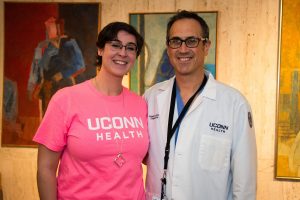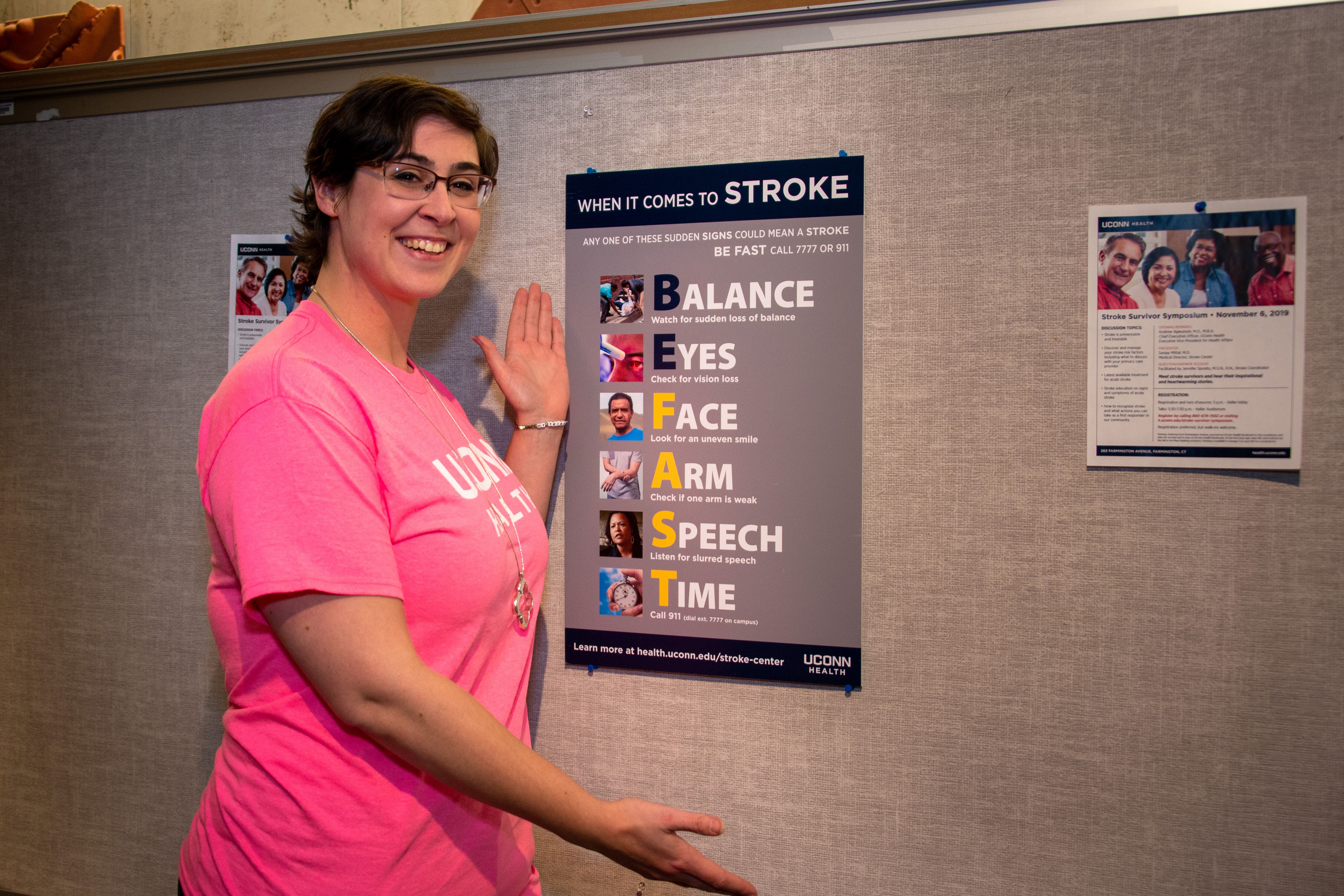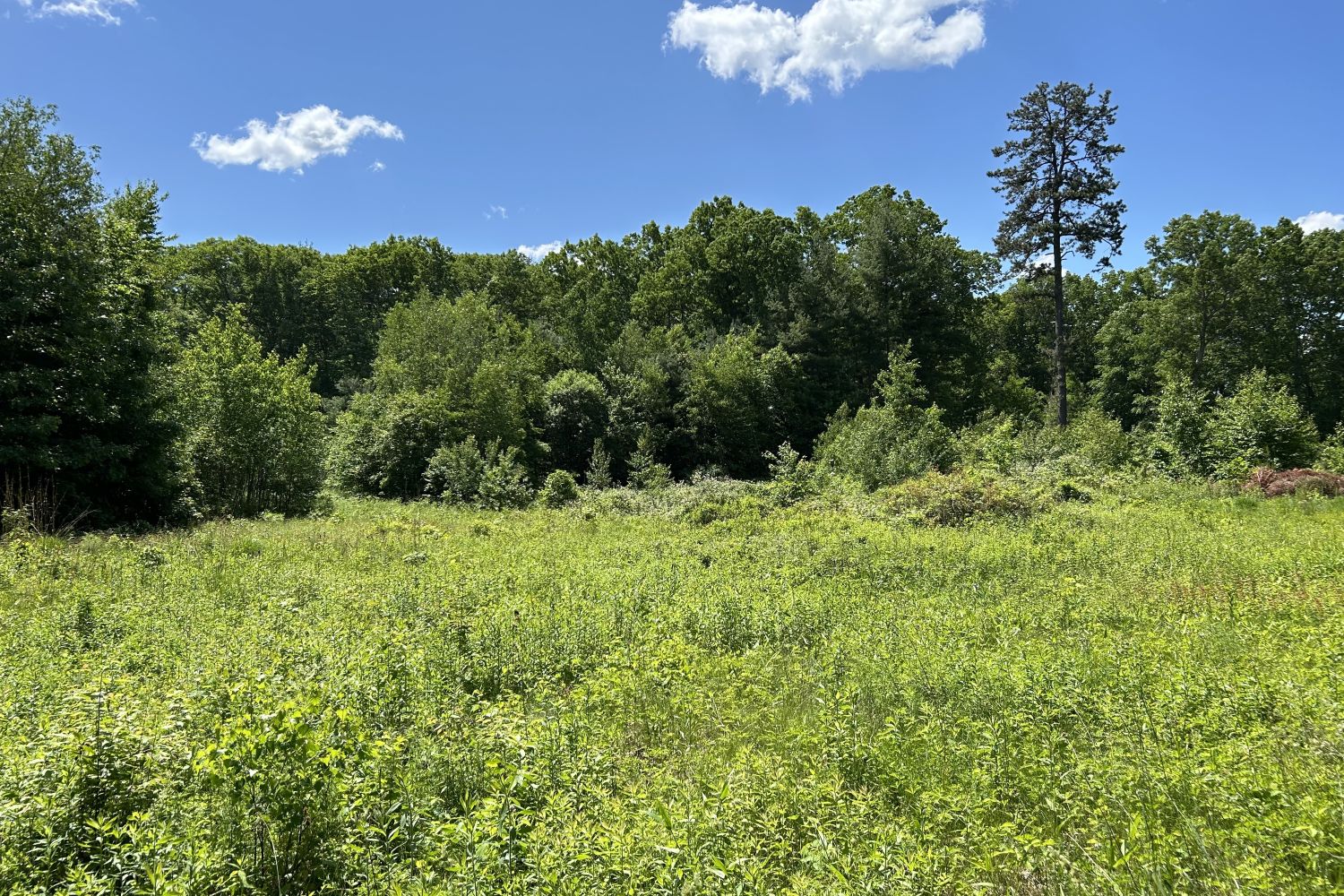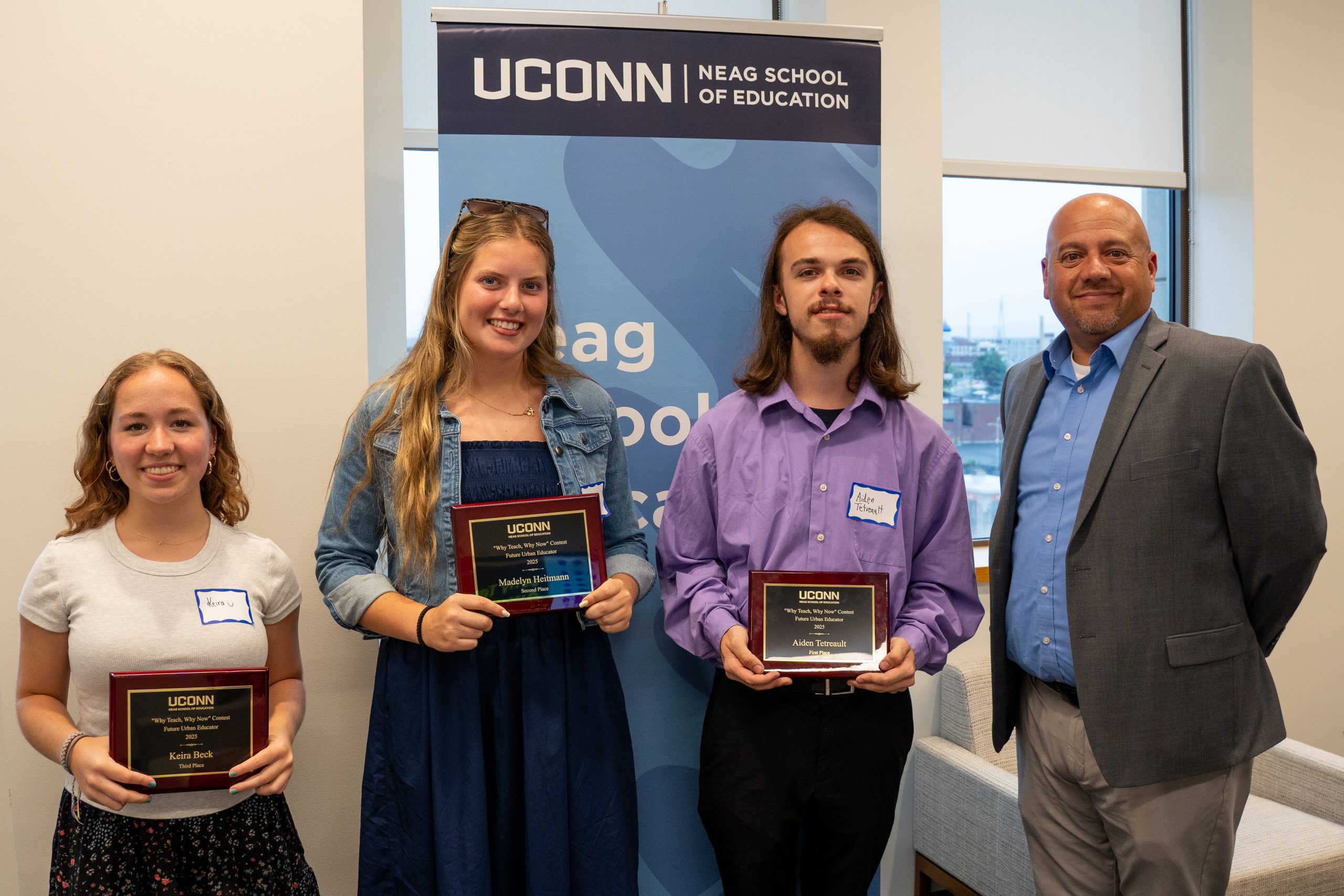Thirty, a milestone birthday. That was the catalyst for a lifestyle change for Andrea “Drea” Wall, 31 of Bristol. She joined the gym, was exercising six days a week, eating healthy and had lost weight.
Wall even found a passion for scuba diving and obtained her open water certification with plans to become an instructor. She had just gotten a divorce and felt that she had a new direction and purpose and was looking forward to the upcoming year.
Physically she was feeling great, so on the early Sunday morning of Memorial Day weekend when her right arm went limp while in the bathroom, she distinctly remembers thinking “well that’s weird.” As she went to stand up the rest of the right side of her body went numb too. She knew whatever was happening was not right.

“As I slowly pitched forward and tried my best to control my slow descent to the floor, I distinctly remember thinking, ‘well, this isn’t good.’ I tried to call for help, I couldn’t find my voice. Words were just not coming out,” recalls Wall.
She struggled to get to the bathroom door and push it open so her friend who was visiting for breakfast would hear her and call 9-1-1.
“There I was laying on my back in the hallway in front of the bathroom. I could talk now, but all that kept coming out of my mouth was Mississippi, I don’t know why,” says Wall.
The paramedic recognized Wall was having a stroke and knew that they needed to get her to UConn John Dempsey Hospital’s Emergency Department right away where there was a dedicated Stroke Center.
“When we heard that a 30-year-old with stroke-like symptoms was coming in through our stroke alert system, our senses heightened,” says Jennifer Sposito, R.N., M.S.N, stroke coordinator at the UConn Health Stroke Center.
EMS’ advanced notification from Wall’s home to the Emergency Department activated the hospital’s swift stroke team’s response that whisked her from the ambulance directly to CT scan machine in the ED. That system works so that patients, like Drea, can rapidly receive TPA (a time-sensitive blood-thinning medication that helps reverse stroke) well below or within the “golden hour” care window.
The neurologists, neuro-interventionalists, anesthesiologists and neurosurgeons in the hospital’s state-of-the-art hybrid OR room and its OR staff worked quickly to get Wall an immediate mechanical thrombectomy procedure to remove the stroke from traveling deeper into her brain.
Dr. Abner Gershon, the neuro-interventionalist that retrieved the clot from the clogged brain artery relates, “‘Time is brain’ is a mantra that I like to keep in mind with regard to stroke treatment. Every second that ticks by there may be brain tissue passing from a viable to a non-recoverable state. Hence the need for rapid intervention.”
Post-surgical intervention, Wall recovered in the Neuro-ICU followed by a comprehensive work up on the Primary Stroke Unit from the advanced stroke trained nurses, rehab specialists, and dedicated care coordinators.
Within 24-hours of her stroke occurring, her speech and motor skills all returned.
“I will always remember visiting her when she was on our primary stroke unit and she had gone from being paralyzed and unable to speak, to a happy, smiling, lively, young, grateful, woman with eloquent speech that regained her ability to walk and move around again,” says Sposito.
“Healthy thirty-year-olds just don’t have strokes, there has to be a reason,” believes Wall.
Stroke is the leading cause of adult disability in the U.S. The American Heart Association has released recent statistics stating that the prevalence of stroke for younger individuals in increasing.
The Hunt to Find Out Why
According to UConn Health’s Dr. Juyong Lee, director of vascular medicine and endovascular therapy, Wall underwent multiple cardiovascular tests to try to identify the root cause of her stroke. She was ultimately diagnosed with a cryptogenic stroke.
“Among patients with cryptogenic strokes, the PFO which is a small hole in the heart that did not close at birth known as a patent foramen ovale, is considered a possible cause of her stroke,” says Lee.
Wall recently underwent a percutaneous PFO closure procedure performed by Lee. During this minimally invasive procedure, a catheter with a tiny closure clip device was inserted through the leg vein and guided up to the heart, where the device is used to close the open flap.
“Closing the PFO with medical therapy has been shown to reduce the recurrent ischemic stroke rate compared to the medical therapy alone,” states Lee.
According to Wall it was important to her to have this procedure to not only prevent further strokes but so she could fulfill her dream to become a scuba diver instructor once cleared by her doctors. Scuba divers with open PFOs may be more likely to have small strokes and damage to their brain when they dive.
Following her life transforming stroke care, Wall has moved all her care to UConn Health and has regular follow-up visits with her neurologist, cardiologist, and hematologists. “I always feel like I’m getting the best care here, not only do your UConn doctors need to be qualified in their role, they are also qualified to teach future doctors,” shares Wall.
“I have found the doctors really take the time to talk to you and explain everything. They focus on doing what is best for you,” says Wall.
“Drea is an integral part of our Stroke Survivor Group at UConn Health. She had shared her inspirational story with others who have gone through similar experiences, all helping each other to heal,” states Sposito, the Stroke Program Coordinator.
“Just because you have a major health event doesn’t mean life is over,” says Wall. “The stroke does not define me.”
Just a month after the stroke, Wall competed in a 5k obstacle course.
This fall, Wall shared her story publicly for the first time at the Stroke Survivor Symposium held at UConn Health. “I decided to speak at the symposium because I wanted to make a difference in people’s lives by sharing my story, how to quickly recognize a stroke, seek timely treatment, and follow lifestyle recommendations to reduce future risk of stroke.”
Wall says that the successful recovery she made was due to how quickly she received stroke care. She knows first-hand that “Time is Brain.”
“It is incredibly uplifting and inspirational to see this life-changing recovery. We are so happy to have her as part of our UConn Health family,” states Sposito.



